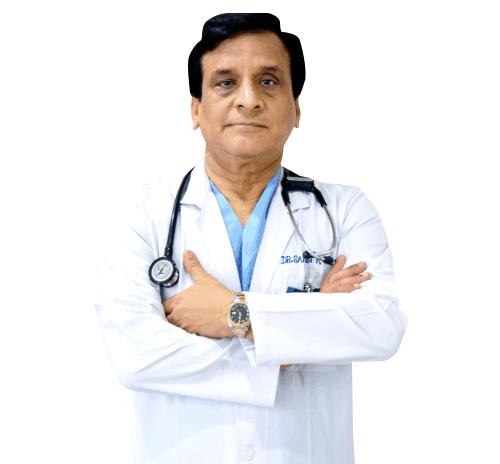What Tests are Required to Check Your Heart's Health?

The increasing cases of heart attacks and heart failures in the past few decades have led to tremendous pressure on doctors to devise out new ways and techniques to detect such problems in the initial stages, making it easier to save the life of the patient. A series of tests are there that can help to detect the problem with very high precision and accuracy. All these tests are considered to be an important part of heart failure treatment in Jaipur and other parts of India as well. Cardiologists in Jaipur have the reputation of being experts in the field and are highly trusted by patients coming from various parts of India.
Physical examination is extremely important and is usually the first resort of the doctors. This not only includes your physical check-up. But also a study of your medical history. In some hospitals, you might even be required to fill a form. You'll be asked certain questions during the examination we'll. Physical examination involves measuring the patient's blood pressure, weight, pulse rate and height. Do not hide anything from your doctor.
A blood test is recommended in most of the cases as it helps to determine sodium, potassium, creatinine and albumin levels in the body which makes it easier to determine the risks of heart failure.
Chest X-rays help to determine any abnormality in the structure of the heart and to check for any sort of congestion. X-rays are taken from both the backside as well as the front.
Electrocardiogram or ECG is one of the most commonly performed tests in cardiology. It involves the use of small electrodes that are placed on your chest to determine any kind of irregularity in your heart beats. It helps to detect problems like enlarged heart muscle wall, arrhythmia or any other abnormality. The procedure is painless.
Echocardiography popularly known as echo uses sound waves to examine the patient's heart. The patient has to lie still while the device is moved over his chest. The sound waves generated by the device bounce off the heart. It helps us to determine the thickness of the heart muscles and whether it is functioning properly.
MRI stands for Magnetic resonance imaging is performed by a specialised MRI technologist. The patient is made to lie down on a movable bed and carefully slid into the MRI machine. The whole procedure is carried out very carefully, keeping in mind the comfort and safety of the patient. You can talk to your technologist with the help of a microphone. Magnetic resonance imaging, as the name suggests, uses a strong magnetic field and radio waves to have a look at your heart and trace any abnormality. The device produces loud thumping sounds that can be blocked by using earplugs. The whole procedure takes about half an hour to 2 hours. MRI helps the doctors to figure out any hindrance in the normal flow of blood throughout the body. It also helps the doctors to understand how much damage has been caused to the heart in case of a heart attack.
Apart from these, there are several other tests that include cardiac catheterization, Radionuclide ventriculography or multiple-gated acquisition scanning and exercise stress test which may be suggested by your cardiologist.
Eternal Heart Care Centre
3 A Jagatpura Road, Near Jawahar Circle, Jaipur, Rajasthan-302017
Call Us: 9549158888 or 18001213422(Toll free)
Email: corporate.marketing@eternalheart.org
Advertise on APSense
This advertising space is available.
Post Your Ad Here
Post Your Ad Here
Comments